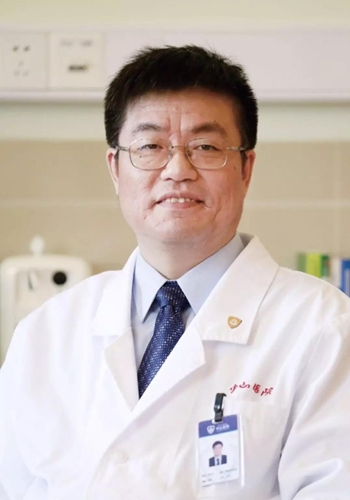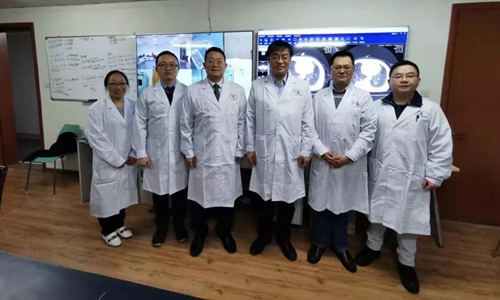HOME >> CHINA
Shanghai COVID-19 medical experts to roll out instructive treatment specifications effective in treating the elderly
By Du Qiongfang Source:Global Times Published: 2020/2/17 21:10:01

Hu Bijie, director of the Department of Infectious Diseases from Zhongshan Hospital affiliated to Fudan University
The latest statistics show 161 patients, nearly half of the total confirmed 331 COVID-19 patients in Shanghai, have been discharged from local hospitals as of Monday morning.
Over the past month, Shanghai doctors who joined the fight against COVID-19 have been constantly adjusting and optimizing their treatment options and gained considerable experience during the course of the treatment. Based on the garnered experience, the municipal-level medical experts have jointly compiled a series of treatment specifications that will be rolled out shortly for the treatment of COVID-19 cases.
Given that Shanghai is a severely aging society and as this group of the population is considerably vulnerable to the COVID-19 and can easily turn into severe and critical conditions, the treatment experience will be particularly instructive to medical teams currently serving in Wuhan, Central China's Hubei Province and other provinces, Hu Bijie, director of the Department of Infectious Diseases from Zhongshan Hospital affiliated to Fudan University, and member of the national expert group for the medical treatment of COVID-19, as well as member of the Shanghai medical treatment expert group, told the Global Times on Monday.

Hu Bijie, third from the right, with other medical experts working at Shanghai Public Health Clinical Center during COVID-19 epidemic.
According to Hu, the Shanghai treatment specifications will be similar to the fifth trial version of the diagnosis and treatment of COVID-19 issued by the National Health Commission but will include more detailed methods of treatment.
"At the moment, diagnosis of COVID-19 is not difficult but the treatment is still challenging since there is no effective medicine for the disease," Hu said. "Shanghai's medical team does quite well in ensuring mild and moderate patients do not deteriorate to severe and critical conditions. At the moment, there are only about 17 patients in critical condition in Shanghai."
Although there is still no effective medicine for the novel coronavirus, the Shanghai experts, based on previous clinical experience, have listed out some medicines that are not suitable in the treatment
"Shanghai medical groups' treatment on COVID-19 is more detailed in management. Some medicine, such as lopinavir and ritonavir tablets (also known as Kelizhi in Chinese), which were used at the beginning of the treatment are no longer used in Shanghai because it can cause side-effects such as diarrhea. We are also more prudent in using glucocorticoid, which can damage a person's immunity," Hu said.
According to Hu, it usually takes years to develop an effective medicine to cure a new disease through different stages of tests. "Compared with before, the current speed of developing a new medicine is already much faster," said Hu acknowledging that even after 17 years, there is still no effective medicine to treat SARS.
"Of course there was also a unique situation for SARS that it disappeared, so there existed no object for scientists to conduct research," Hu said.
Posted in: SOCIETY